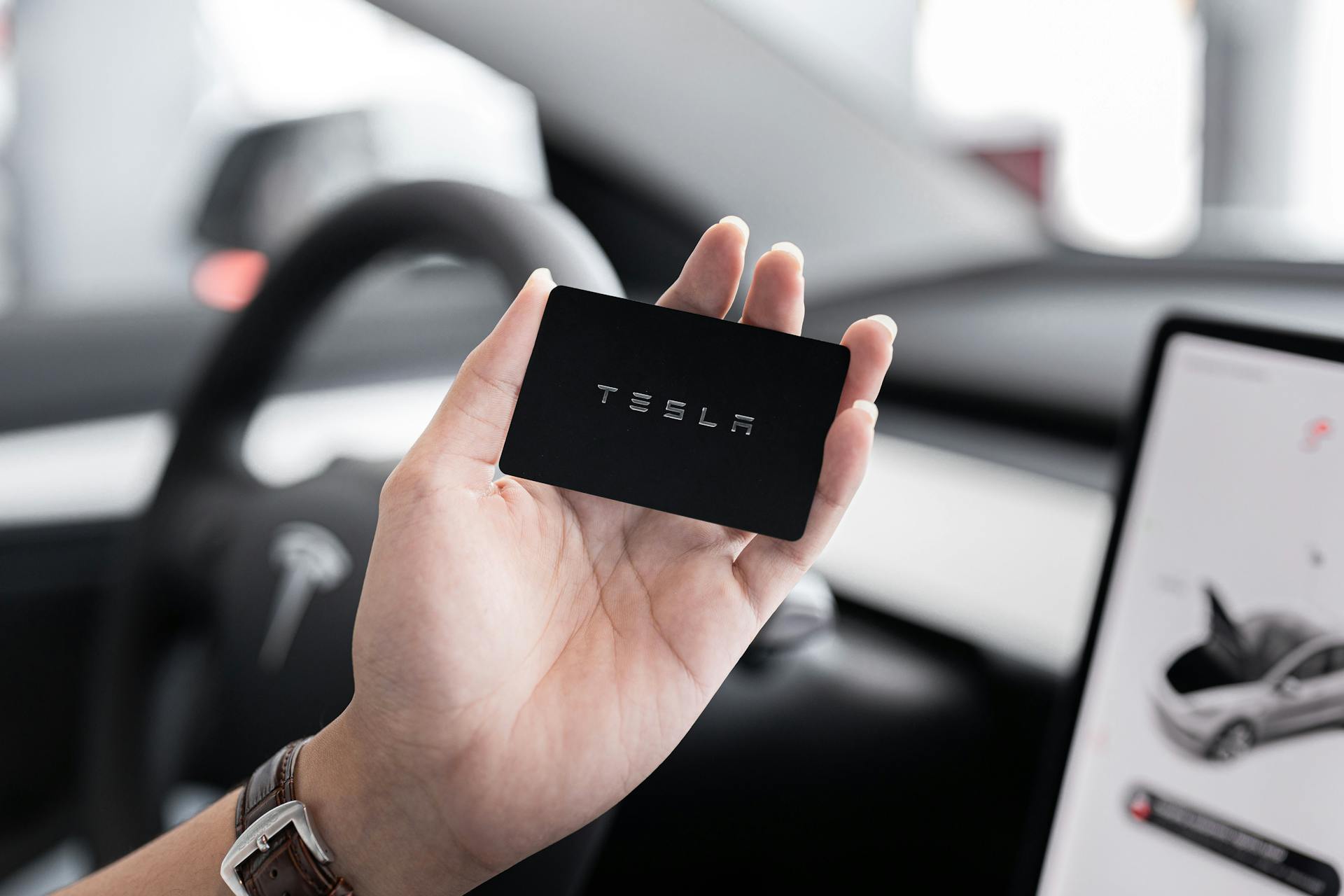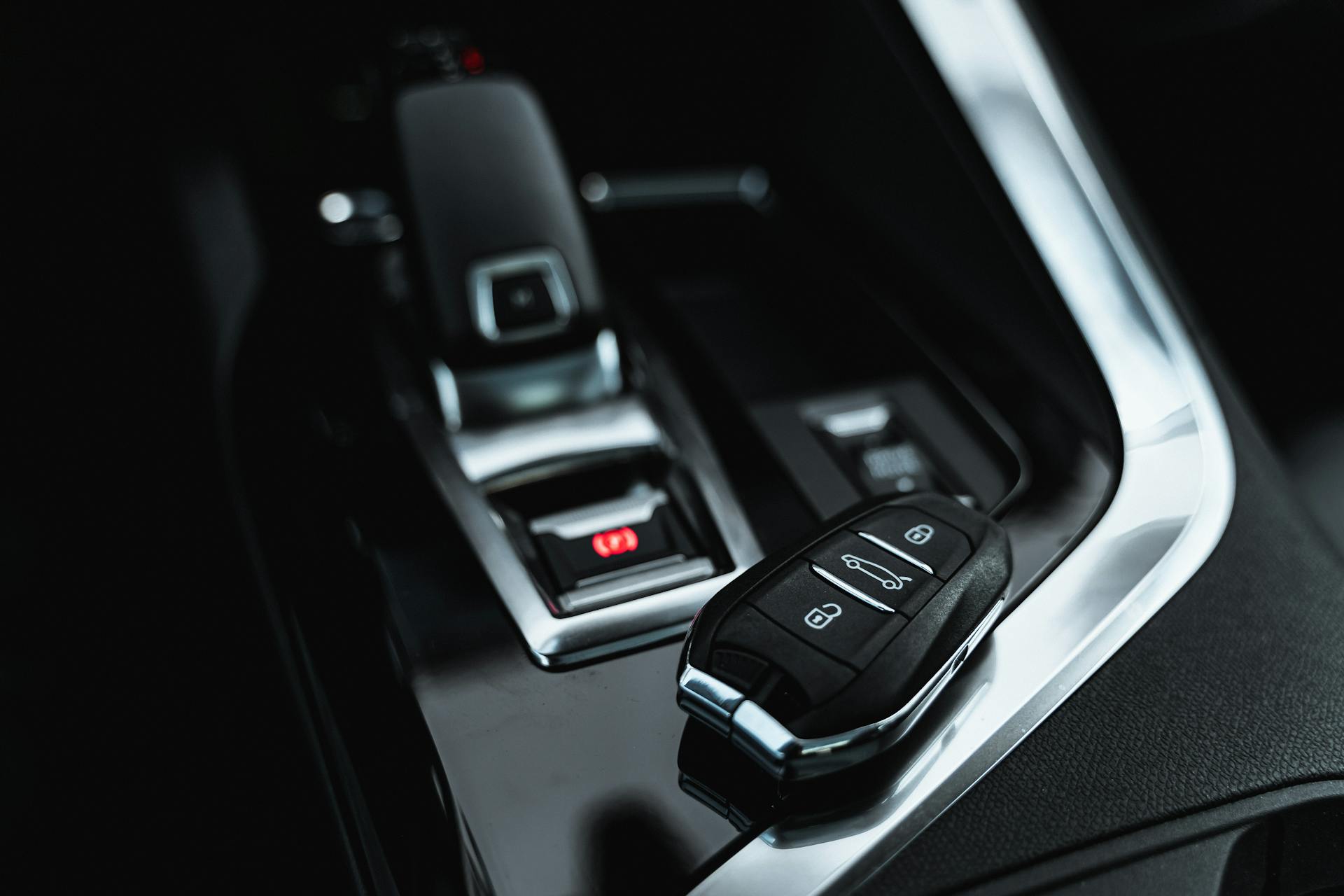
Vehicle leasing with insurance can be a great option for those who want a new set of wheels without the long-term commitment of owning a car.
You can lease a vehicle for a fixed period, usually 2-3 years, and make monthly payments that cover the vehicle's depreciation and interest.
Leasing a vehicle can also provide lower monthly payments compared to financing a car purchase.
In addition, leased vehicles often come with a manufacturer's warranty, which covers repairs and maintenance for the duration of the lease.
Leasing Requirements
To lease a car, you'll need to satisfy both your state's minimum car insurance requirements and your leasing company's insurance requirements. Some states may require you to get more insurance if you lease a car instead of buying it outright.
You'll usually need to buy full-coverage car insurance for a leased vehicle, which includes liability, collision, and comprehensive car insurance coverages. Liability insurance covers injuries and property damage you may cause, with minimum amounts varying from state to state.
Here are the key insurance coverages you'll need for a leased car:
- Liability insurance (bodily injury and property damage)
- Collision coverage (damage caused by a collision)
- Comprehensive coverage (damage caused by non-collision events)
State Requirements

As you consider leasing a vehicle, it's essential to understand the state requirements for car insurance. You'll need to meet your state's minimum car insurance requirements, which vary depending on where you live.
Bodily injury liability coverage is a common requirement, paying out if you injure someone else in a car accident. This coverage also covers lost wages if the injured person can't work due to the crash.
Property injury liability insurance is another requirement, covering damage to another person's vehicle or property in a crash you caused. This type of insurance can help you avoid costly lawsuits.
Uninsured and underinsured motorist coverage is also typically required, paying out if you get into an accident that you didn't cause and the other driver doesn't have enough (or any) coverage to pay for your medical expenses or car repairs.
Here are the common types of coverage you'll need to consider:
- Bodily injury liability coverage
- Property injury liability insurance
- Uninsured and underinsured motorist coverage
- Personal injury protection (PIP)
- Medical payments coverage (MedPay)
Company Requirements
Leasing companies often require higher liability limits than state minimums, which can be more expensive. This means you'll likely need to buy additional insurance coverages beyond the state's minimum requirements.
Collision coverage, which pays to repair your vehicle after most car crashes, is a common requirement. Comprehensive coverage, which covers damage to your car from most events besides a traffic collision, is also often required.
Your leasing company may require you to have a full coverage insurance policy, which includes liability, collision, and comprehensive coverages. This can be more expensive than the state's minimum required insurance, but it's a good idea to build up your coverage beyond those minimums.
Here are some common insurance requirements for leased vehicles:
Cost
Full-coverage car insurance costs $4,430 a year or $369 a month, on average.
Your leasing company may require you to carry higher liability limits than what your state requires, which can increase your overall rate.
Collision and comprehensive car insurance limits are usually based on the actual cash value of your vehicle, so if you lease an expensive vehicle like a sports car, you can expect to pay a higher car insurance premium.
Gap insurance can cost as little as $20 a year, but auto dealerships may charge $500 to $1,000 a year for it, which could be included in your monthly car payment or required upfront.
It's recommended to get gap insurance if your leased car is brand new, as new cars depreciate quickly in their first few years.
Your monthly car payment isn't actually the monthly payment you negotiate with the car sales representative – plan to pay an additional 15% every month on tax.
Readers also liked: 0 down Payment Car Lease
Leasing Options
Leasing options can be tailored to fit your needs, with some contracts offering flexibility on mileage limits.
You can choose from a variety of lease terms, typically ranging from 24 to 60 months.
Some leases come with a mileage allowance, allowing you to drive a certain number of miles per year without incurring extra fees.
Be aware that exceeding this limit can result in significant charges, with costs ranging from 10 to 20 cents per mile.
Leasing companies often offer add-ons, such as gap insurance and maintenance plans, to provide additional protection and convenience.
These add-ons can help mitigate potential risks and expenses, giving you more peace of mind during your lease.
Discover more: High Mileage Car Lease
Leasing Insurance
You need to buy insurance for a leased car before you drive it off the lot. It's a requirement, not an option.
To get started, ask the dealership about their required auto insurance limits. This will give you a good idea of what to expect.
Next, shop around and compare quotes from multiple companies to find the best combination of cost and policy offerings. It's like shopping for a new phone or a new TV - you want to find the best deal.
Your leasing company will require you to list them as an additional insured and loss payee on your car insurance policy. This means they'll be notified of any changes to your policy or policy status, and they'll receive any claim payouts.
Here are the key things to keep in mind when applying for insurance for your new lease car:
- Inform your insurer that the finance company is the registered owner of the vehicle.
- This can help prevent confusion with the insurance provider's system.
Once you finalize your car insurance purchase, your insurer will send you proof of car insurance coverage that you can share with the dealership. This is a crucial step in completing the leasing process.
Gap
Gap insurance is a must-have for leased car owners. It pays out if you total your vehicle, covering the difference between the car's value and how much you owe on your lease.
A leased car's value decreases after you drive it off the lot, so if you total the car, you can wind up owing thousands of dollars out of pocket to your lessor.
Some leasing agreements require guaranteed asset protection, or "gap" insurance, to protect you from this scenario. Gap insurance protects you if your leased car is totaled and you still owe money on it.
Your auto insurance company will only provide a payout based on the car's actual cash value (ACV), which is lower than the car's purchase price. If you don't have gap insurance, you'll have to pay the difference out of pocket.
For example, if you lease a new car for $30,000 and total it, your provider might pay you $15,000 based on the vehicle's ACV. You'd still have to pay your leasing company $10,000, which gap insurance would cover.
Here are some key things to know about gap insurance for leased cars:
- Gap insurance pays out if you total your vehicle and still owe money on your lease.
- It covers the difference between the car's value and how much you owe on your lease.
- Some leasing agreements require gap insurance.
Leasing Decisions

Leasing a vehicle with insurance can be a great option for those who want a new car every few years.
Insurance costs can vary depending on the type of vehicle you lease and your driving history.
To make an informed decision, consider your budget and the total cost of ownership, including insurance, fuel, and maintenance.
If you're someone who drives a lot, you may want to consider leasing a vehicle with a lower mileage limit to avoid extra fees.
When You Lease?
Leasing a car can be a great option, but it's essential to understand what's included and what's not. Car insurance is not included when you lease a vehicle, so you'll need to buy it on your own.
You'll need to purchase at least the minimum amount of car insurance required by both your state and your lease agreement. This is a non-negotiable requirement, as you won't be able to legally drive your leased car until you meet these requirements.
Intriguing read: What Insurances Do I Need

If you already have auto insurance for other vehicles, you can quickly add the leased car to your policy. This is usually faster than shopping around for a new policy or company, and you may even qualify for a multi-vehicle discount.
To avoid delays in car insurance coverage, you can also apply for coverage before picking up your leased vehicle. Set the active date for when you drive the car for the first time to ensure you're covered right away.
Here are your main options for getting car insurance when you lease a vehicle:
- Adding the leased car to your existing policy
- Applying for new coverage before picking up your leased vehicle
To Buy or Not?
The decision to lease or buy a car ultimately comes down to what you hope to get out of your new vehicle. Your auto insurance rates may be more expensive for a leased vehicle.
If you're looking for a lower upfront cost, leasing might be the way to go. Financing a purchase can be a better option for you if that's the best fit for your current situation.
Leasing can be more enticing with its lower upfront cost, but buying might be the better choice if you're looking for long-term ownership.
Pros and Cons of Leasing

Leasing a car can be a great option for some drivers, but it's essential to consider the pros and cons before making a decision.
One of the biggest advantages of leasing is that it's typically cheaper in the long term compared to buying. This is because you'll only pay for the vehicle's depreciation during the lease period, rather than the full purchase price.
Leasing also gives you the freedom to drive as much as you want, without worrying about mileage limits. You can put as many miles on the car as you need, without incurring extra fees.
However, be aware that leased vehicles are usually subject to certain restrictions, such as limitations on modifications and improvements. If you want to make any changes to the vehicle, you'll need to get permission from the lease provider first.
Leasing also means that you won't have to worry about the costs associated with selling or trading in a vehicle. You're free to sell, trade, or gift your car without any hassle.

Here are some key benefits of leasing at a glance:
- No mileage limits
- Total ownership and control for any modifications or improvements
- Typically cheaper in the long term
- No charges for wear and tear
- Free to sell, trade, or gift your vehicle
On the other hand, leasing has its downsides. For example, you may be limited to a certain number of miles per year, which can be as low as 10,000 or as high as 15,000 miles.
Additionally, leased vehicles are often subject to fees for wear and tear, as well as other charges such as acquisition fees. And if you're involved in an accident, you may be responsible for costs that your insurance doesn't cover.
These fees can add up quickly, so it's essential to carefully review your lease agreement before signing.
Frequently Asked Questions
What is the cheapest car insurance for a lease?
For leased vehicles, USAA, GEICO, and State Farm often offer the lowest car insurance premiums. Consider these insurers for affordable coverage, but be aware that additional costs like gap insurance may apply.
Sources
- https://www.nerdwallet.com/article/insurance/leased-car-insurance
- https://www.policygenius.com/auto-insurance/news/im-leasing-a-car-heres-how-much-it-costs/
- https://quotewizard.com/auto-insurance/insurance-for-leased-cars
- https://www.berryinsurance.com/blog/buying-vs.-leasing-car-insurance-video
- https://www.intelligentcarleasing.com/car-leasing-insurance
Featured Images: pexels.com


